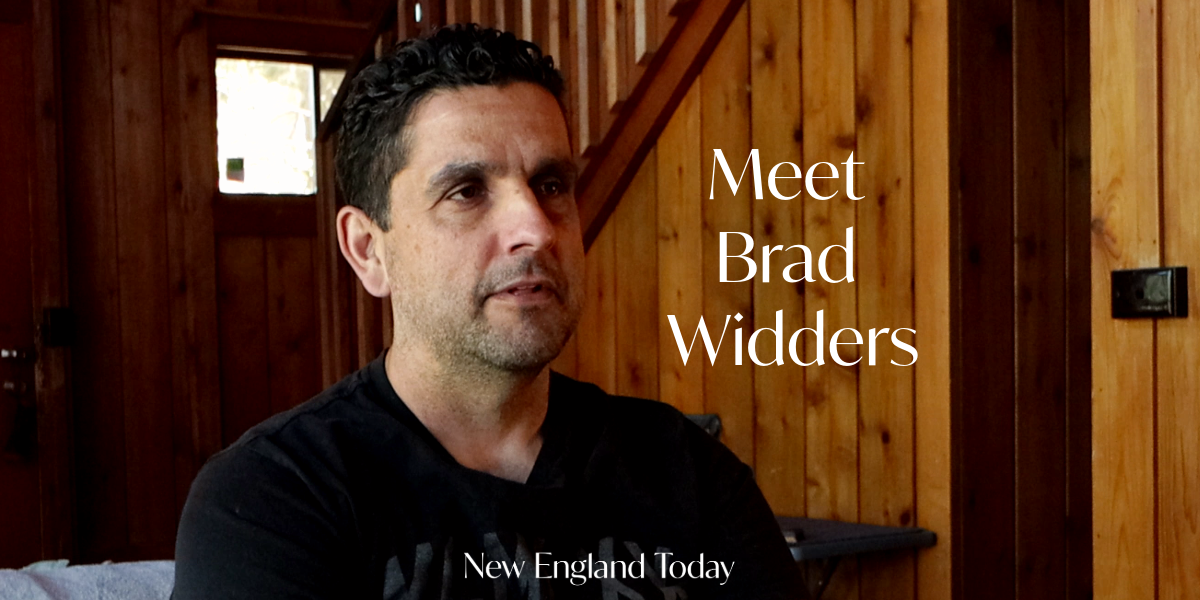Brad Widders is known in the Armidale region for a multitude of reasons. He works with kids, the community, fitness groups, education, land and environment, Aboriginal people and is an Anaiwan man. He is also a councillor on the Armidale Regional Council.
We asked him to have a chat about everything except politics. This was not a hard task for Widders – he isn’t a standard politician.
Passion for land and environment
“I work with the Department of Climate Change, Energy, Environment and Water in the Net Zero land team, doing carbon abatement, land sequestration, and things like that,” the humble Widders said.
His work in carbon abatement or carbon sequestration combines new science with traditional ways such as cultural burns to make a real difference in the New England.
He is a passionate advocate of growth and believes there is much that can be done to grow and strengthen our communities, through improving services.
“People go because they’re needing services.”
“We need to do what we can to keep people here longer, and get them back sooner.”
Silos and echo chambers
Widders believes silos and echo chambers are holding us back – isolated groups who have trouble sharing ideas and rejecting others without investigation – creating division within their neighbourhood.
“The best way to break [silos] up is to be self-aware”.
That self-awareness allows us to see that we may be living in an isolated environment. With that insight we can begin the process of sharing our knowledge.
“The information that is in this silo could help the people who are over here [in another silo]”.
The problem, Brad believes is, “confirmation bias…we want to hear what we want to hear”.
“If you stop learning, then what’s the point of living?”
“Sometimes you’ve gotta hear what we need to hear,” Widders said.
Welcome to Country burn out
Welcome to Country and Acknowledgement of Country are an accepted part of most forward-thinking organisations, but for some, they have lost their meaning. But Widders says they are designed to share in the knowledge that, “If you look after the land, the land looks after you”.
For some, this manifests guilt, but Brad says “we are all in this together, and yes we’re moving forward… and we all have the same responsibilities as people had 2, 3, 400 years ago… to look after the land.”
Brad says he is positive about us moving forward together, as he is seeing groups who were once opposed to the concept have adopted Acknowledgment to Country as stand protocol in meetings and events.
Youth and crime
Changing the environment children are born into is difficult. There are young people who have found themselves believing that, as Widders says, “I want what they have. I’m jealous of what they have…why have they got things so good?”
“People only know what they know – if that’s the environment that they’ve grow up in… we’ve got to find a better way”.
Brad says that for the Aboriginal people caught in the silo, they have to learn to walk in two worlds.
“We have to be able to walk in a traditional world and an Aboriginal world, and then be able to survive and make it in a Western world”.
He believes if you are not strong in both of those areas, it makes life difficult.
“When the kids are stronger in culture, they’re stronger within themselves. And stronger kids, make stronger communities.”
For the full Brad Widders conversation, check out New England Today
Advertising with New England Times is a cost effective and reliable way to reach New England locals who are interested and engaged. Find out more here.


